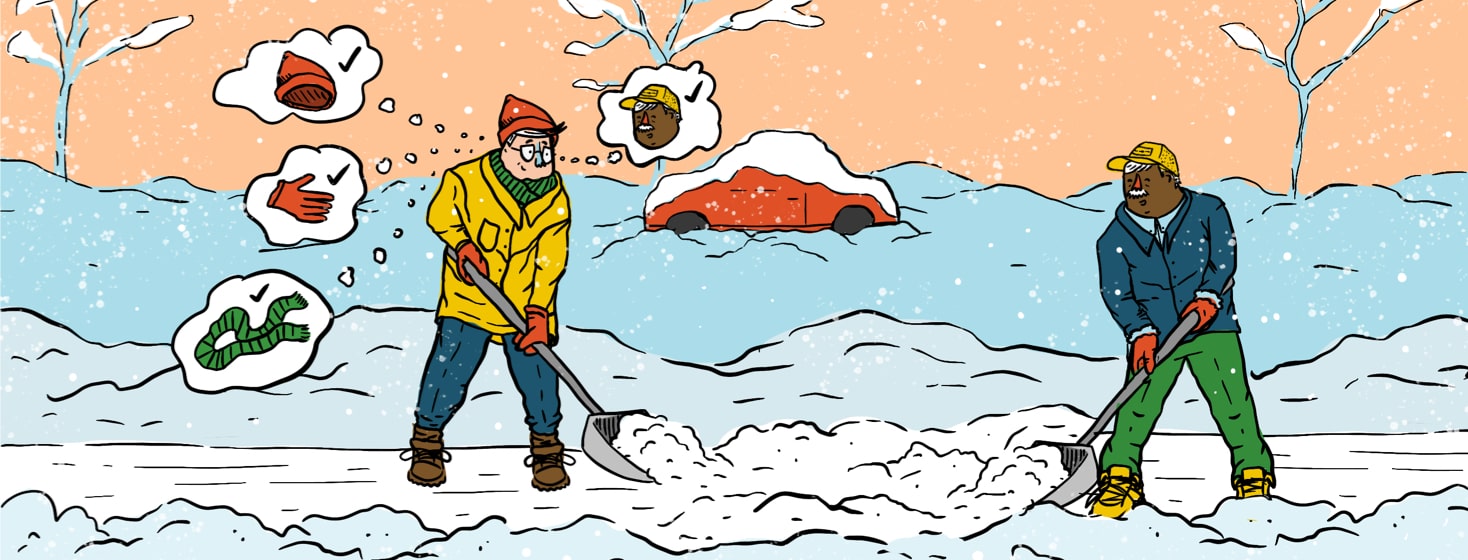Tips for Staying Healthy in the Cold Winter Air
Being out in the cold winter air may trigger symptoms like chest tightness and shortness of breath. Physical activity, such as shoveling snow in the winter cold air, may worsen these symptoms. Yet there are things we can do to reduce our risk of developing these symptoms. Here are some tips to help you stay healthy when out in the cold.
Why does cold air increase your risk for heart issues?
Let’s say you go out in the cold winter air. As your skin gets cold, it triggers a response that causes your blood vessels to constrict or become narrow. This is your body's attempt to hold in heat and keep your body warm.1,2
This causes your heart to work extra hard to pump blood through your body. In turn, this increases your heart rate and blood pressure.1,2
Now, this happens with healthy people too. But for those with heart failure, your heart may have a harder time keeping up.
This or That
Do you struggle managing your health in your cold weather?
This can become even worse when you are active in the cold, such as when you are shoveling snow. This is because when you are exercising, your heart beats faster and harder.1,2
But, as noted above, cold air may constrict blood vessels and decrease the flow of blood to your heart. If you already have heart disease (such as heart failure), your heart may not be able to adequately supply your heart with blood and oxygen. This may also cause symptoms of chest pressure and shortness of breath. It may increase your risk for abnormal heart rhythms, heart failure, and heart attacks.1,3
What can you do to stay healthy when it is cold outside?
There are steps you can take to reduce your risk for heart-related complications when it is cold outside. These tips can help you manage your way through the cold winter season:
- Dress for the weather. As mom would say, wear your coat, mittens, and hats. This will help keep your body's heat inside your body and keep you warm. This reduces the amount of work your body and heart have to do to keep you warm.
- Pace yourself. If you have to go out to shovel snow, do so in intervals. For example shovel for a couple of minutes, and then go inside to warm up. When you are nice and warm, bundle up again and go out for another couple of minutes. This way you get the job done but you do not wear your body out. And you still get a good workout.
- Limit your time in the cold air. Try to not stay out in the cold any longer than you have to.
- Warm up your car. For those times you have to drive somewhere when it's cold outside, warm up your car ahead of time. I like to use my car starter and start up the car about 15 minutes before I have to go anywhere. This way, I'm out in the cold for only a minute or so before I enter the nice, warm car.
- Exercise. This is one of the best ways to keep your heart in top shape. Talk to your doctor about their recommendations for exercise. When your heart is in top shape, it is better capable of handling any stress, such as the impact of cold air.
- Get someone to help you. It is great to stay as active as you can. And this may include activities that involve going out in the cold, such as shoveling snow in your driveway. However, sometimes it may be best to avoid such activities. And one way of going about this is to find someone else to help you do it. You can ask a neighbor or family member to help shovel your snow. Or, you may want to hire someone to do it.
What do you think?
What do you do when it gets cold outside? Do you have tips for managing yourself in the cold winter air? Please share your thoughts and tips for staying healthy in the cold weather with heart failure in the comments below.

Join the conversation